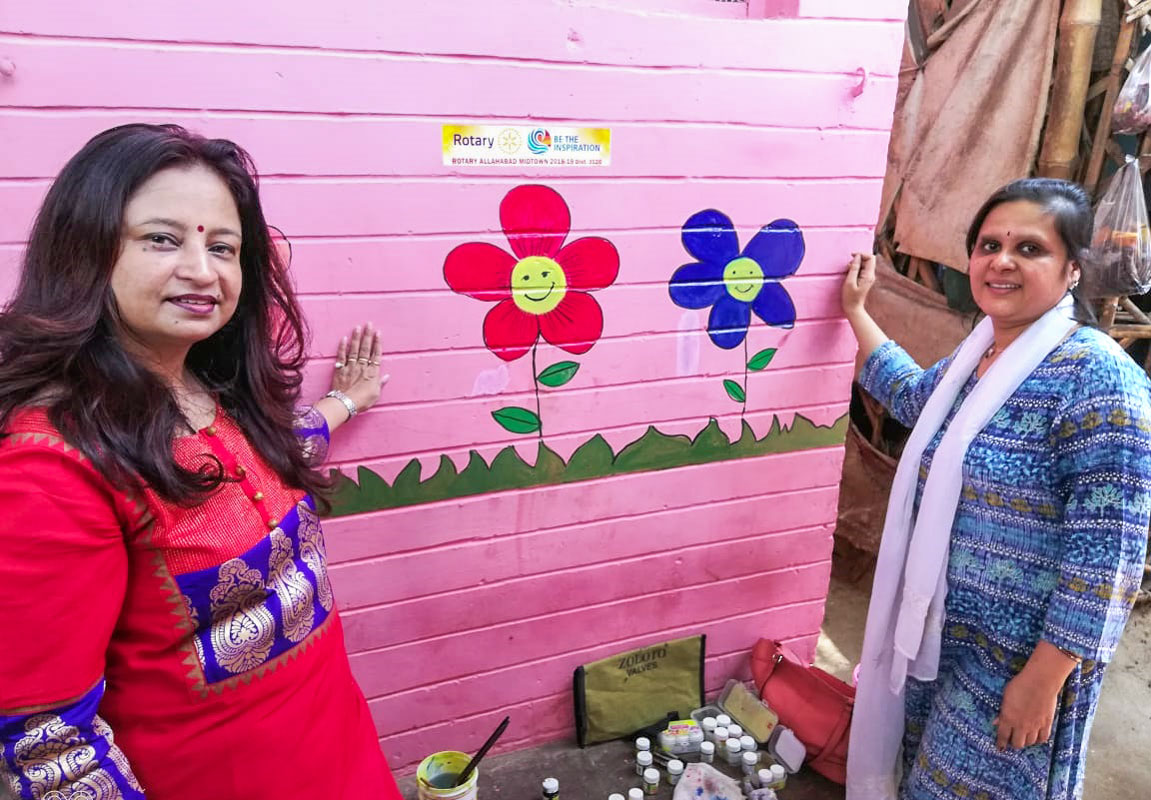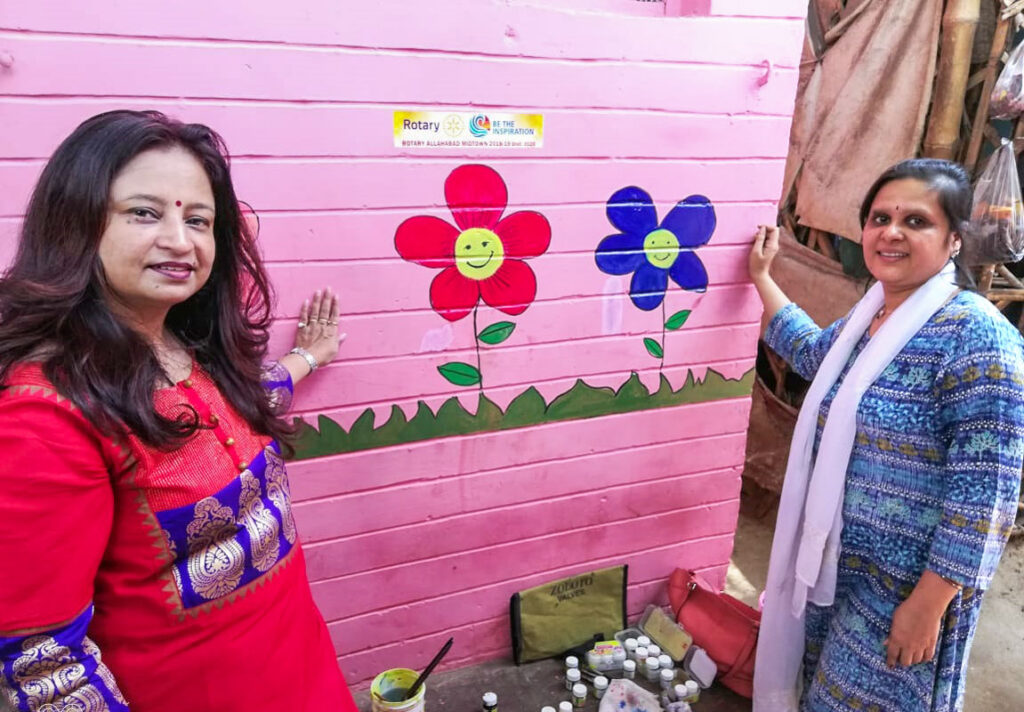
No child is a beggar or a garbage picker or a labourer here, says Divya Bartaria, President of RC Allahabad Midtown, RID 3120, referring to Gau Ghat, a slum near the Yamuna Bridge in Prayagraj. There are 200 children here and “every child is happy to attend a make shift school run by Vivek Kumar Dubey”, she says.
She explains that Dubey hails from Barai Kala village in Jaunpur district. His childhood was spent in helping his mother who was working in a small farm. She died when he was in Class 11, but her dream was he should pursue higher education. He completed BSc from Ewing Christian College, Allahabad, staying at the S D Jain Hostel and worked for his college fees by giving tuition. He then enrolled for MSc at the Allahabad University.
When we went there with brushes and paint cans, we were mobbed by the children and it was a fun exercise painting the walls together with them.
While walking from the hostel to the University he would see children engaged in pasting posters, polishing shoes, showing snakes kept in a basket in return for money. One day, he came across two little girls picking garbage
from the streets and bins as they were hungry. He took them to a roadside restaurant and gave them food. Again here, he was disturbed to see young boys serving food. That’s when he and some of his friends, started a mission, Ek pahal shiksha ki aur (A step towards education) and formed a committee to provide education to the children of the Gau Ghat slums.
Divya continues: “Two years ago, impressed with his dedication and commitment, we decided to work with Dubey, although he shunned our help initially owing to some past unpleasant experiences with some other NGOs.” The club members convinced him by explaining about Rotary’s literacy programmes and ever since, the club has been supporting Dubey’s mission by providing stationery items, footwear and new clothes for the children to sustain their interest in education.
“We conduct various contests for these children regularly and distribute prizes. We also keep the parents happy by gifting them new clothes, shawls and blankets for sending their children to school.” The older children are given career guidance and a vocational training centre has been established in the locality by Dubey’s team to train women in tailoring. The club has equipped it with sewing machines, ceiling fans and furniture. Bicycles are being provided to girl children as an incentive to perform well in studies. The school is presently functioning in a makeshift shelter; so “we are exploring possibilities to provide a permanent structure for it,” says the club president, adding that she wants to support Dubey’s dream to establish an orphanage on the outskirts of the town where he has a piece
of land.
A beautifying endeavour
The mud walls of the thatched huts in the slum look vibrant, painted fluorescent yellow, green and pink, and decorated with hand-painted floral designs, birds and cartoon characters. “When we went there with brushes and paint cans, we were mobbed by the children and it was a fun exercise with every resident pitching in one way or the other, transforming the place into a happy and creative environment,” she says.
More recently, a Rotary Sunday Bazaar was organised in Gau Ghat where household articles, clothes, bedsheets and footwear were lined up for sale. The local youth manned the stalls and the items were sold for ₹5–10. “The money raised went to the development of the locality.”
Soon after the Covid-19 lockdown was announced, the Rotarians rushed to the slum to help the 300 families with essentials. They distributed cooked food and grocery kits to the residents, besides providing them with masks and sanitisers. “We created awareness about corona virus and stressed the importance of maintaining hygiene and physical distance,” says Divya. As she steps into the new Rotary year, this feisty young president has plans to provide support to farmers by organising training in crop cultivation, use of advanced equipment and water management.








